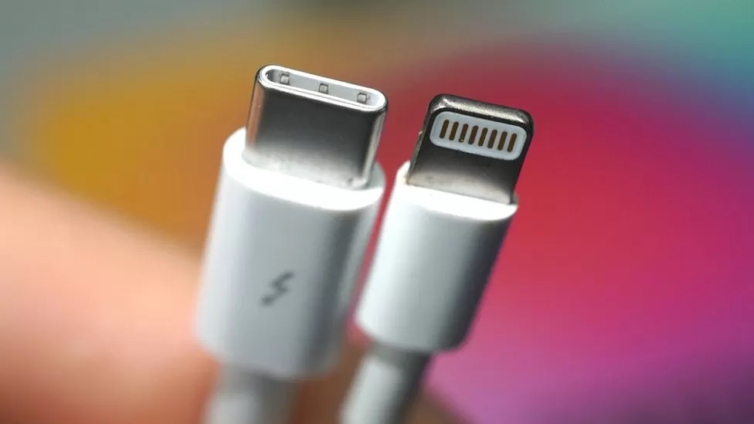Apple's latest iPhone will almost certainly feature a USB-C charge point when it is unveiled on 12 September.
The firm's phones currently use its proprietary Lightning adaptor, unlike rivals, including Samsung.
A European Union law requires phone manufacturers to adopt a common charging connection by December 2024 to save consumers money and cut waste.
Most new Apple products such as the latest iPads already use USB-C, but the firm had argued against the EU rule.
When it was introduced in September 2021, an Apple representative told BBC News: "Strict regulation mandating just one type of connector stifles innovation rather than encouraging it, which in turn will harm consumers in Europe and around the world."
Lightning to USB-C adaptors are already available from other electronics brands including Amazon, and all iPhones since the iPhone 8 which launched in 2017 have supported wireless charging.
As the current iPhone 14 now looks to be the last Apple device to exclusively use it, this could mark the beginning of the end of the Lightning cable - which retails on the Apple store for £19.
It's unclear whether this will be a global change to the product, although the tech giant is less likely to make a different version of the handset for the European market alone.

The changes are anticipated in the new iPhone 15 and iPhone 15 Pro devices which are set to be unveiled next week at the firm's annual autumn event.
According to a report by Bloomberg news, benefits of the switch for users will include customers being able to use a single charger for iPads, Macs and iPhones, as well as faster download speeds.
The EU common-charger rule covers a range of "small and medium-sized portable electronics", according to the EU, including:
- mobile phones
- tablets
- e-readers
- mice and keyboards
- GPS (global positioning system) devices
- headphones, headsets and earphones
- digital cameras
- handheld videogame consoles
- portable speakers.
Any of these charged using a wired cable will have to have a USB Type-C port, regardless of who makes the devices.
Laptops will also have to abide by the rules but manufacturers have longer to make the changes.
According to the EU, it will save consumers "up to €250m [£213m] a year on unnecessary charger purchases" and cut 11,000 tonnes of waste per year.
Latest Stories
-
Alan promises to amend the Constitution to limit presidential powers
3 mins -
Ghana to face liquidity pressures in 2025, 2026 despite restructuring most of its debt – Fitch
6 mins -
NPP’s record of delivering on promises is unmatched – Bawumia
7 mins -
Mahama: It’s time to dismiss the incompetent NPP government
9 mins -
Today’s front pages: Monday, November 25, 2024
23 mins -
T-bill auction: Government misses target again; interest rates continue to rise
25 mins -
We have a bad technical team; Otto Addo and his team should go – Ernest Thompson
2 hours -
Hindsight: Why Accra Lions’ present problems do not define them
2 hours -
10-year-old Lisa Laryea arrives at Wits Donald Gordon Hospital in South Africa for bone marrow transplant
3 hours -
23 ambassadors inducted to take on 2025 GSTEP Challenge in three regions
3 hours -
Ghana Shea Workers Union inaugurated
3 hours -
Microsoft 365 under attack – how to bulletproof your business against cyber threats
3 hours -
I trust Bawumia; he has never lied to me – Akufo-Addo
3 hours -
Bawumia is hardworking; offers the youth platform to share ideas – Kow Essuman
3 hours -
IGP, Police commanders worship with churches in Ghana as part of security arrangements for 2024 elections
3 hours

